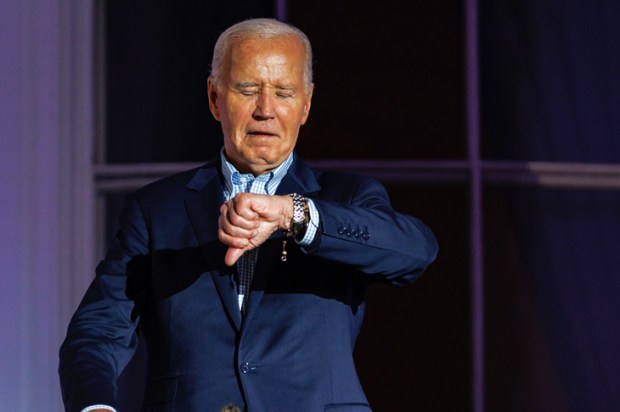Two weeks ago, I wrote about the rise of the New Right and its challenge to the liberal consensus on social, economic and environmental policies; the displacement of the old left-right ideological divide by the managerial-technocratic versus working class divide; and the growing disenchantment with democracy because of electoral distortions through which voter preferences fail to translate into political representation. All three have been confirmed by the UK election. The biggest short-term winner is Labour, short-term losers are the Tories and democracy and long-term winner may be Reform.
Never in democratic history have so many been elected by so few. With 9.7 million votes, Labour won 412 seats. With 6.8 and 4.1 million votes, Conservatives and Reform won 121 and 5. In the most distorted outcome in British history, on average, a Reform MP won with 821,000 votes compared to just 23,600 for Labour. Labour’s ‘landslide’ disguises the smallest vote share won by any governing party since 1945, possibly since 1923 when Labour won just 31 per cent. Four out of every five eligible voters either refused or else failed to vote for Starmer’s Labour. Starmer won 3.2 million fewer votes than Corbyn in 2017. Far from Starmageddon, this was a collapse of the Conservatives. Starmer has won a massive landslide but lacks a popular mandate. The foundations of his ‘loveless landslide’ rest on the shifting sands of populist rage against the Tories. The vote share makes it possible to visualise a one-term Starmer government, but only if the small-c ‘conservatives’ draw the right lessons.
In fourteen years of enjoying the trappings and perks of power, the Tories lost their sense of purpose in governing philosophy, their commitment to competence in managing the affairs of state and their sense of decency in the culture wars. Trying to be all things to all voters, they ended up standing for nothing and falling for everything. Their Covid policies betrayed core conservative principles of limited government, individual liberties and tax-and-spend fiscal discipline. The hope and optimism of five years ago had given way to rage at the crumbling health, social and physical infrastructure, the loss of social trust in public institutions and in a despised political elite competing to manage national decline.
We have just witnessed ‘a historic collision between technocratic government and political legitimacy’, John Gray wrote in the New Statesman. Nigel Farage best captures the zeitgeist of this titanic struggle, with promises to banish the blob from the public sphere and repatriate the hollowed-out task of governing from the technocrats to the government. The media-savvy Farage’s canny success could be a game-changer in British politics. With a Thatcherite vision of a free market economy with a severely pruned back welfare state, reduced tax burden, trimmed down bureaucracy and radically redesigned national health service, he is well positioned to reverse-engineer a takeover of the British right from within Westminster.
Reform filled the void after the Tories moved left. Reform won just five seats but came second in 98. Not bad for the political equivalent of a garage start-up that the establishment haughtily dismissed as an upstart party led by a racist rabble-rouser. This astonishing feat was achieved within one month, with virtually no activist base or funding and caught by surprise by the election timing. Their march was especially pronounced in breaching the Tories’ Red Wall that is foundational to building a centre-right majority. Unsurprisingly, Farage has vowed to campaign for an end to the first-past-the-post system and replace it with proportional representation.
An increasing trend of populist politics is its star performers campaign in primary colours: Trump, Le Pen, Meloni, Poilievre, Orbán, Modi, Tony Abbott. Voters are rejecting leaders on offer in fifty shades of grey, like Sunak and Starmer. In opposition, Starmer was able to avoid making tough calls and coasted into power on the back of the populist rage against the Tories. He no longer has the luxury of avoiding the difficult choices on economic, social and environmental policies that will anger groups on the losing end of the decisions. Starmer will also be wedged by the Greens and Muslims.
The election has birthed overtly Islamic politics tacking to a foreign conflict. Five pro-Gaza independent candidates will sit in parliament, the same number as Reform. Meanwhile Fatima Payman could become the focal point for forming a religiously based party bent on importing foreign conflicts into domestic Australian politics. She rode into the Senate as a complete unknown solely on a Labor party ticket and is now inflicting political damage on it. In Canada too there have been revelations that Harjit Sajjan, a Sikh MP who was defence minister when the West’s involvement in Afghanistan came to an inglorious end in 2021, instructed the Canadian forces to prioritise the rescue of 225 Afghan Sikhs over Canadians and Afghans who had helped them.
Unlike Labour and the Conservatives, Reform doesn’t suffer from lack of enthusiasm. Quite the contrary. With a five-seat bridgehead firmly established in Westminster, building on the database of voters, activists and volunteers created and experience gained during the 2024 campaign, Reform will be able to target resources more systematically next time to convert many near misses into wins. From this point on, the quirks of the first-past-the-post electoral system could work to Reform’s advantage. On average, every one per cent of vote change from Labour to Reform will result in a disproportionate number of seat gains for the latter. In the 98 seats in which Reform came second, one analysis shows, snatching just 340,000 votes from the winning party could put it ahead of the Tories and catapult it into the official opposition.
UK conservatives face the same dilemma as their counterparts in Australia. Do they shift back to the right to outcompete Reform; tack even more to the left to wean votes away from the LibDems; or try to do both to different audiences and lose all remaining credibility? To win back power, they must first win the argument to refresh and revive mainstream conservative ideas. Beyond a certain point, attempts to appease ‘moderate’ voters by moving the party to the centre lose more votes among the faithful than they gain amongst others. A better strategy is to shift the centre towards the party through robust engagement in the contest of ideas with respect to economic management, cultural values, mass immigration and net zero. They must rediscover core values, articulate a clear alternative vision, weed out careerists sans conservative convictions and choose an inspirational leader who can explain the values, why they matter and how they are to be achieved within the organising principles of the party at a pivotal moment in history when much of the West is returning to conservatism. The policy agenda should commit to restoring sovereign decision-making, shrinking government, strengthening free speech, reducing immigration and paring back the administrative state. Reform can do this more credibly than the discredited and derided Tories after fourteen wasted years.
Got something to add? Join the discussion and comment below.
You might disagree with half of it, but you’ll enjoy reading all of it. Try your first month for free, then just $2 a week for the remainder of your first year.













